Already struggling with coronavirus-induced slowdowns, emerging market economies are facing further pressure from a rallying dollar, which has inflated borrowing costs for businesses and prompted foreign money to leave their stock markets.
Emerging market countries that depend on their commodity exports have also been hit by a fall in crude oil prices this year.
Against a basket of other currencies, the dollar hit a 3-year high of 102.99 last week. However, it has dropped about 2% so far this week.
Countries with lower foreign reserves or higher current account deficits are more vulnerable and their currencies are likely to weaken further, analysts said.
The following charts show which emerging market economies are under bigger threat due to a stronger dollar and industrial shutdowns across the world due to the coronavirus outbreak.
Among the emerging markets, South Africa, Brazil and Indonesia have the biggest current account deficits, according to Oxford Economics data.
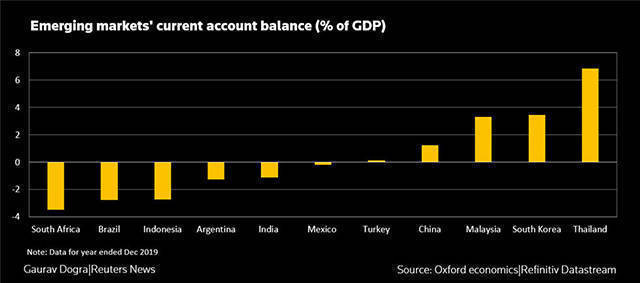
Argentina, Turkey and South Africa, have higher levels of external debt, which makes up more than 50% of their country's GDP, the data showed.
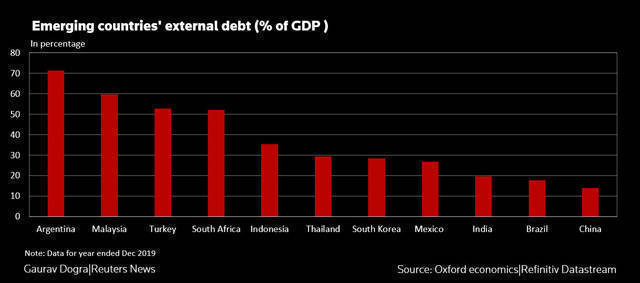
Emerging markets are seeing heavy foreign outflows this year, and countries with weaker current accounts are likely to find it difficult to plug their deficits. According to data from stock exchanges and bond market associations, India has seen outflows of more than $14 billion so far this year and Indonesia has witnessed outflows of about $7.6 billion.
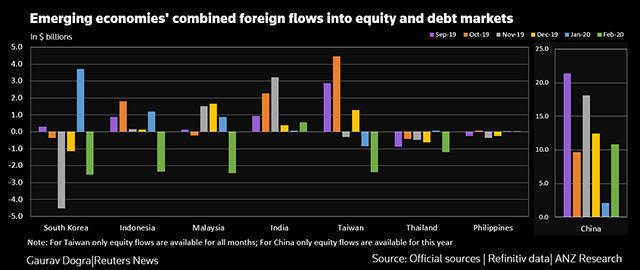
Emerging market countries with higher dependency on export revenues are also affected due to disruptions in supply chains across the world, as measures are taken to contain the pandemic.
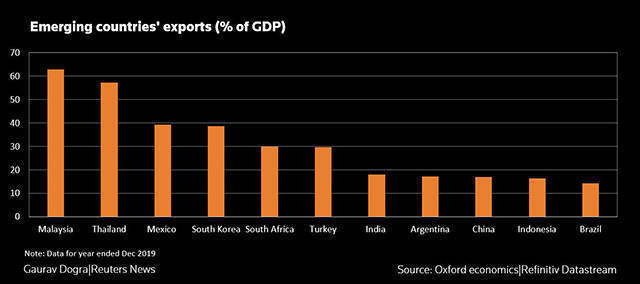
With jobs and salaries cut across sectors, some analysts expect countries that rely on remittance flows from overseas workers to be affected disproportionately.
Philippines has a remittances-to-GDP ratio of more than 10%, the highest among emerging market countries.
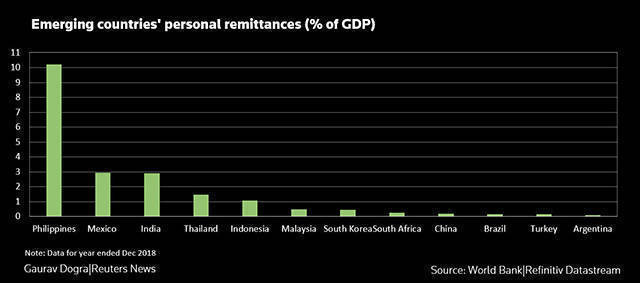
Mexico's and India's remittances to GDP ratios were about 3% each.
Mexican Peso, Brazilian Real, and South African Rand, are the worst performing emerging market currencies so far this year, shedding 21.1%, 20.2% and 19.4%, respectively, against the dollar.







